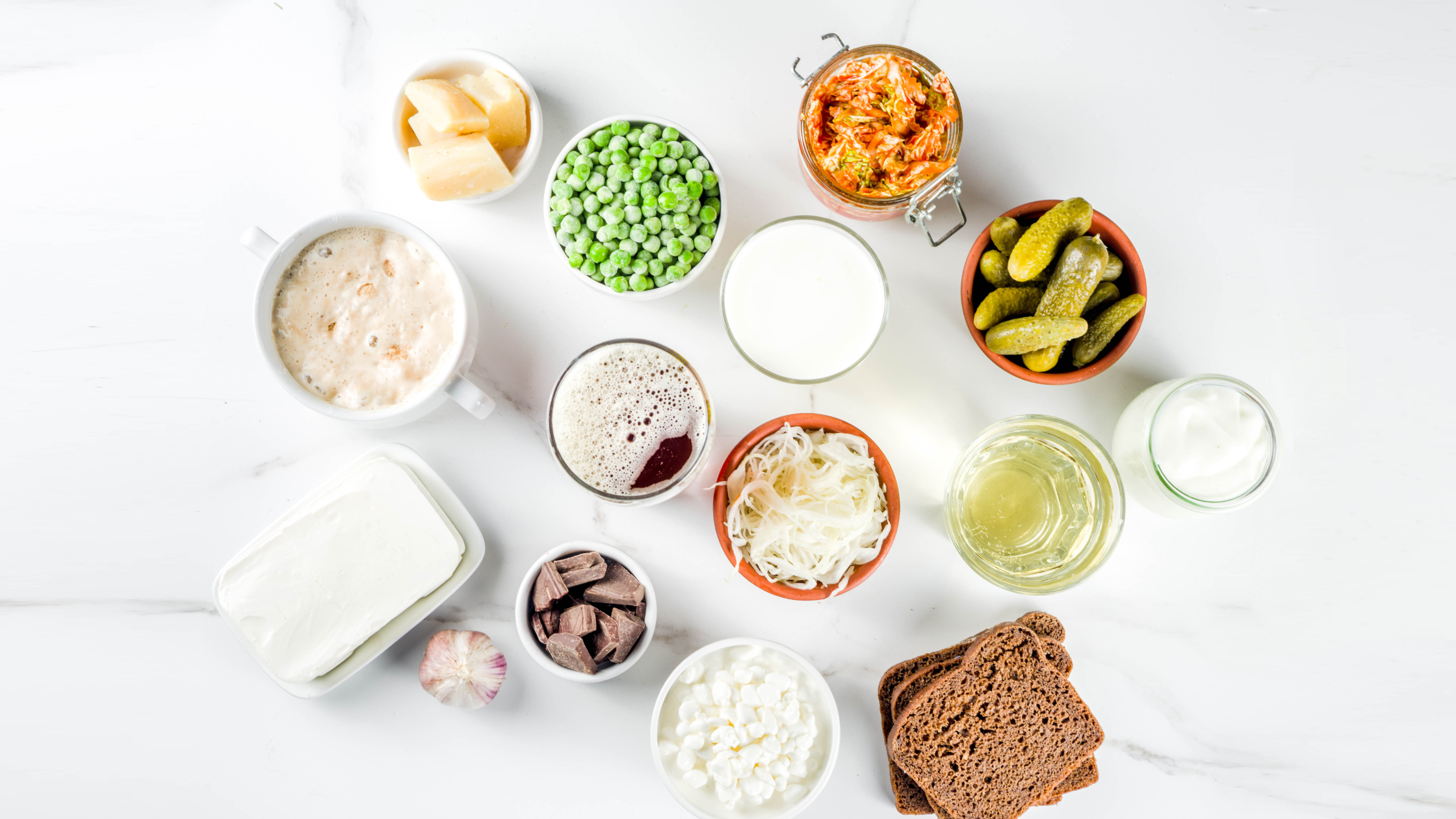Your gut does more than just digest food—it influences your energy, mood, immune system, hormone balance, and even your skin. For women, gut health becomes even more important as hormonal changes throughout life can directly impact digestion.
If you’ve ever experienced bloating before your period, digestive issues during pregnancy, or changes in bowel habits during menopause, you’ve witnessed the gut-hormone connection firsthand.
This guide will help you understand how your gut works, why it matters so much for overall health, and practical steps to support better digestion naturally.
Why Gut Health Matters for Women
Your digestive system is home to trillions of bacteria, fungi, and other microorganisms collectively known as your gut microbiome. This complex ecosystem plays a crucial role in:
- Nutrient absorption: Breaking down food and extracting vitamins and minerals
- Immune function: About 70% of your immune system resides in your gut
- Hormone regulation: Gut bacteria help metabolize estrogen and other hormones
- Mental health: The gut-brain axis influences mood, anxiety, and stress response
- Inflammation control: A healthy gut helps reduce systemic inflammation
When your gut microbiome is balanced, you feel energized, digest food comfortably, and maintain stable moods. When it’s disrupted—a condition called dysbiosis—you might experience bloating, irregular bowel movements, fatigue, skin issues, and even hormonal imbalances.
The Gut-Hormone Connection
Women’s digestive health is uniquely tied to hormonal fluctuations. Here’s how:
During Your Menstrual Cycle
Progesterone rises in the second half of your cycle and can slow digestion, leading to constipation and bloating. When your period starts, prostaglandins can speed up gut motility, sometimes causing diarrhea.
During Pregnancy
Hormonal changes slow digestion to maximize nutrient absorption for your baby, but this often causes constipation and heartburn. Supporting your gut during pregnancy is essential for both your health and your baby’s developing microbiome.
During Perimenopause and Menopause
Declining estrogen affects gut motility, gut lining integrity, and the diversity of gut bacteria. Many women experience new digestive issues during this transition, including increased bloating, constipation, or food sensitivities.
Learn more about how gut health and probiotics support hormone balance in women.
Common Digestive Issues Women Face
Bloating
That uncomfortable, swollen feeling in your abdomen can result from gas production, constipation, food sensitivities, or hormonal changes. While occasional bloating is normal, persistent bloating warrants attention.
Women going through menopause often experience increased bloating. Check out these menopause bloating remedies for targeted relief.
Constipation
Defined as fewer than three bowel movements per week, constipation affects women more than men due to hormonal influences, pelvic floor anatomy, and slower gut motility.
Irritable Bowel Syndrome (IBS)
IBS affects twice as many women as men and often worsens around menstruation. Symptoms include abdominal pain, bloating, diarrhea, constipation, or alternating between both.
Small Intestinal Bacterial Overgrowth (SIBO)
SIBO occurs when bacteria overgrow in the small intestine, causing bloating, gas, diarrhea, and nutrient malabsorption. It’s more common in women with hormonal imbalances or those who’ve taken multiple courses of antibiotics.
The Foundation: What Your Gut Needs
1. Diverse Fiber Intake
Fiber feeds beneficial gut bacteria and promotes regular bowel movements. Aim for 25-30 grams daily from varied sources:
- Soluble fiber: Oats, beans, apples, berries (feeds good bacteria)
- Insoluble fiber: Whole grains, nuts, vegetables (adds bulk to stool)
Learn about prebiotic supplements for gut health if you struggle to get enough through food.
2. Adequate Hydration
Water helps fiber work effectively and keeps things moving through your digestive tract. Aim for at least 8 glasses daily, more if you exercise or live in a hot climate.
3. Probiotics: The Good Bacteria
Probiotics are live beneficial bacteria that support gut health. They can:
- Reduce bloating and gas
- Improve bowel regularity
- Support immune function
- Help with nutrient absorption
- Balance vaginal health
Food sources include yogurt, kefir, sauerkraut, kimchi, and kombucha. If you need extra support, consider a quality probiotic supplement.
Discover the best probiotics for women and how to choose the right strains for your needs.
4. Prebiotics: Food for Good Bacteria
Prebiotics are types of fiber that specifically feed beneficial gut bacteria. Rich sources include:
- Garlic and onions
- Leeks and asparagus
- Bananas (especially slightly green ones)
- Oats and barley
- Apples and berries
Explore the best prebiotic foods to naturally support your microbiome.
Gut Health Through Different Life Stages
In Your 30s and 40s
This is when stress, busy schedules, and hormonal changes can start affecting digestion. Focus on:
- Building consistent meal timing
- Managing stress (it directly impacts gut motility)
- Incorporating fermented foods regularly
- Supporting hormone balance naturally
During Pregnancy
Your gut health impacts your baby’s developing microbiome. Priorities include:
- Eating fiber-rich foods to combat pregnancy constipation
- Taking a prenatal probiotic
- Staying well-hydrated
- Addressing heartburn and nausea safely
Learn whether probiotics are safe during pregnancy and which strains are most beneficial.
During Perimenopause and Menopause
Declining estrogen affects gut function. Support includes:
- Increasing fiber intake
- Taking targeted probiotics
- Eating anti-inflammatory foods
- Supporting bone health (gut bacteria help with calcium absorption)
Understand how probiotics can ease menopause symptoms.
Foods That Support Gut Health
Fermented Foods
These are natural probiotic sources:
- Yogurt and kefir: Choose unsweetened varieties with live active cultures
- Sauerkraut and kimchi: Look for refrigerated versions (not shelf-stable)
- Kombucha: A fermented tea with beneficial bacteria
- Miso and tempeh: Fermented soy products rich in probiotics
During pregnancy, check out these probiotic foods safe for pregnant women.
Polyphenol-Rich Foods
Polyphenols feed good bacteria and reduce inflammation:
- Berries and cherries
- Dark chocolate (70% cacao or higher)
- Green tea
- Extra virgin olive oil
- Colorful vegetables
Omega-3 Fatty Acids
Found in fatty fish, walnuts, and flaxseeds, omega-3s reduce gut inflammation and support the intestinal lining.
Bone Broth
Rich in collagen and glutamine, bone broth helps repair and seal the gut lining—especially helpful if you have increased intestinal permeability (“leaky gut”).
Foods That Can Harm Gut Health
Highly Processed Foods
Ultra-processed foods often contain additives, emulsifiers, and artificial sweeteners that can disrupt gut bacteria and increase inflammation.
Excess Sugar
High sugar intake feeds harmful bacteria and yeast, potentially leading to dysbiosis and overgrowth issues.
Artificial Sweeteners
Some artificial sweeteners can negatively alter gut bacteria composition. If you notice digestive issues, consider eliminating them temporarily.
Excessive Alcohol
Alcohol can damage the gut lining and disrupt the microbiome balance. Moderation is key.
The Role of Supplements
Probiotic Supplements
Not all probiotics are created equal. Look for:
- Multiple strains: Lactobacillus and Bifidobacterium species are well-researched
- CFU count: At least 10-50 billion CFUs for general health
- Shelf-stable or refrigerated: Depending on the product
- Third-party tested: Ensures quality and potency
Find detailed guidance on choosing the best probiotic supplement for your specific needs.
Prebiotic Supplements
If you can’t get enough prebiotic fiber from food, supplements containing inulin, FOS (fructooligosaccharides), or GOS (galactooligosaccharides) can help.
Review the best prebiotic supplements available.
Digestive Enzymes
These supplements help break down food and can be helpful for:
- Bloating after meals
- Feeling overly full
- Food sensitivities
- Age-related enzyme decline
L-Glutamine
This amino acid supports gut lining repair and can be beneficial if you have increased intestinal permeability or inflammatory bowel conditions.
Lifestyle Factors That Impact Digestion
Stress Management
Chronic stress directly impacts gut function through the gut-brain axis. When you’re stressed, your body diverts blood flow away from digestion, slows gut motility, and can increase intestinal permeability.
Stress reduction strategies include:
- Regular movement or exercise
- Meditation or deep breathing
- Adequate sleep (7-9 hours nightly)
- Time in nature
- Connection with loved ones
Sleep Quality
Poor sleep disrupts gut bacteria and can worsen digestive symptoms. Your gut has its own circadian rhythm, and irregular sleep patterns can throw it off.
Movement and Exercise
Regular physical activity stimulates gut motility and supports a diverse microbiome. Even a daily 20-30 minute walk makes a difference.
Mindful Eating
Eating slowly, chewing thoroughly, and avoiding distractions during meals supports proper digestion by:
- Triggering adequate saliva and digestive enzyme production
- Reducing air swallowing (which causes bloating)
- Allowing your brain to register fullness cues
When to Seek Professional Help
While many digestive issues can be improved with diet and lifestyle changes, some symptoms warrant medical evaluation:
- Persistent or severe abdominal pain
- Unexplained weight loss
- Blood in stool
- Chronic diarrhea or constipation that doesn’t improve
- New onset symptoms after age 50
- Severe bloating that interferes with daily life
- Symptoms suggesting food allergies or intolerances
A healthcare provider can run tests to rule out conditions like celiac disease, inflammatory bowel disease, SIBO, or other underlying issues.
Building Your Gut Health Action Plan
Week 1-2: Assess and Baseline
- Keep a food and symptom journal
- Note patterns between what you eat and how you feel
- Identify potential trigger foods
- Assess your current fiber and water intake
Week 3-4: Add Gut-Supporting Foods
- Introduce one fermented food daily
- Increase vegetable variety and colors
- Add a prebiotic-rich food to each meal
- Ensure adequate hydration
Week 5-6: Consider Supplementation
- Start a quality probiotic if needed
- Add prebiotic fiber if you struggle to get enough from food
- Consider digestive enzymes if bloating persists
Week 7-8: Optimize Lifestyle Factors
- Establish regular meal times
- Practice mindful eating
- Improve sleep hygiene
- Incorporate daily movement
- Add stress-management practices
Ongoing: Maintain and Adjust
- Continue eating diverse, whole foods
- Rotate fermented foods and prebiotic sources
- Adjust supplements based on your response
- Stay consistent with lifestyle habits
Special Considerations
PCOS and Gut Health
Women with PCOS often have altered gut bacteria that can worsen insulin resistance and inflammation. Supporting gut health may help improve PCOS symptoms.
Endometriosis and Digestion
Many women with endometriosis experience digestive symptoms, partly because endometrial tissue can grow on the bowel. An anti-inflammatory diet and gut support can help manage symptoms.
Pregnancy and Postpartum
Your microbiome changes during pregnancy and is passed to your baby during birth and breastfeeding. Taking probiotics during pregnancy may reduce the risk of gestational diabetes, preeclampsia, and postpartum depression.
Menopause Transitions
The drop in estrogen during perimenopause and menopause affects gut bacteria diversity and gut lining integrity. Targeted support becomes increasingly important during this time.
A Word From Vitamins For Woman
Your gut health influences far more than just digestion—it affects your energy, mood, hormones, immunity, and overall wellbeing. For women, supporting gut health through different life stages is essential for feeling your best. Start with simple changes: add more fiber-rich plant foods, include fermented foods regularly, stay hydrated, manage stress, and move your body daily. If you need additional support, quality probiotics and prebiotics can make a meaningful difference.
References
Siddiqui, R., Akbar, N., & Khan, N. A. (2022). The gut microbiome and female health. Frontiers in Cellular and Infection Microbiology, 12, 968786. https://doi.org/10.3389/fcimb.2022.968786
Valencia, S., Hernández, O., & Martínez, V. (2025). Human gut microbiome as a connecting organ between nutrition and health. International Journal of Molecular Sciences, 26(9), 4112. https://doi.org/10.3390/ijms26094112
Dawson, S. L., Todd, E. R., & Ward, A. C. (2025). The interplay of nutrition, the gut microbiota and immunity and its contribution to human disease. Biomedicines, 13(2), 329. https://doi.org/10.3390/biomedicines13020329
Van Hul, M., Lefevre, M., & Cani, P. D. (2024). What defines a healthy gut microbiome. Gut, 73(11), 1893–1904. https://doi.org/10.1136/gutjnl-2023-330228
Ashonibare, V. J., Zhang, Y., & Jin, L. (2024). Gut microbiota–gonadal axis and its impact on female reproductive function. Frontiers in Immunology, 15, 1346035. https://doi.org/10.3389/fimmu.2024.1346035






